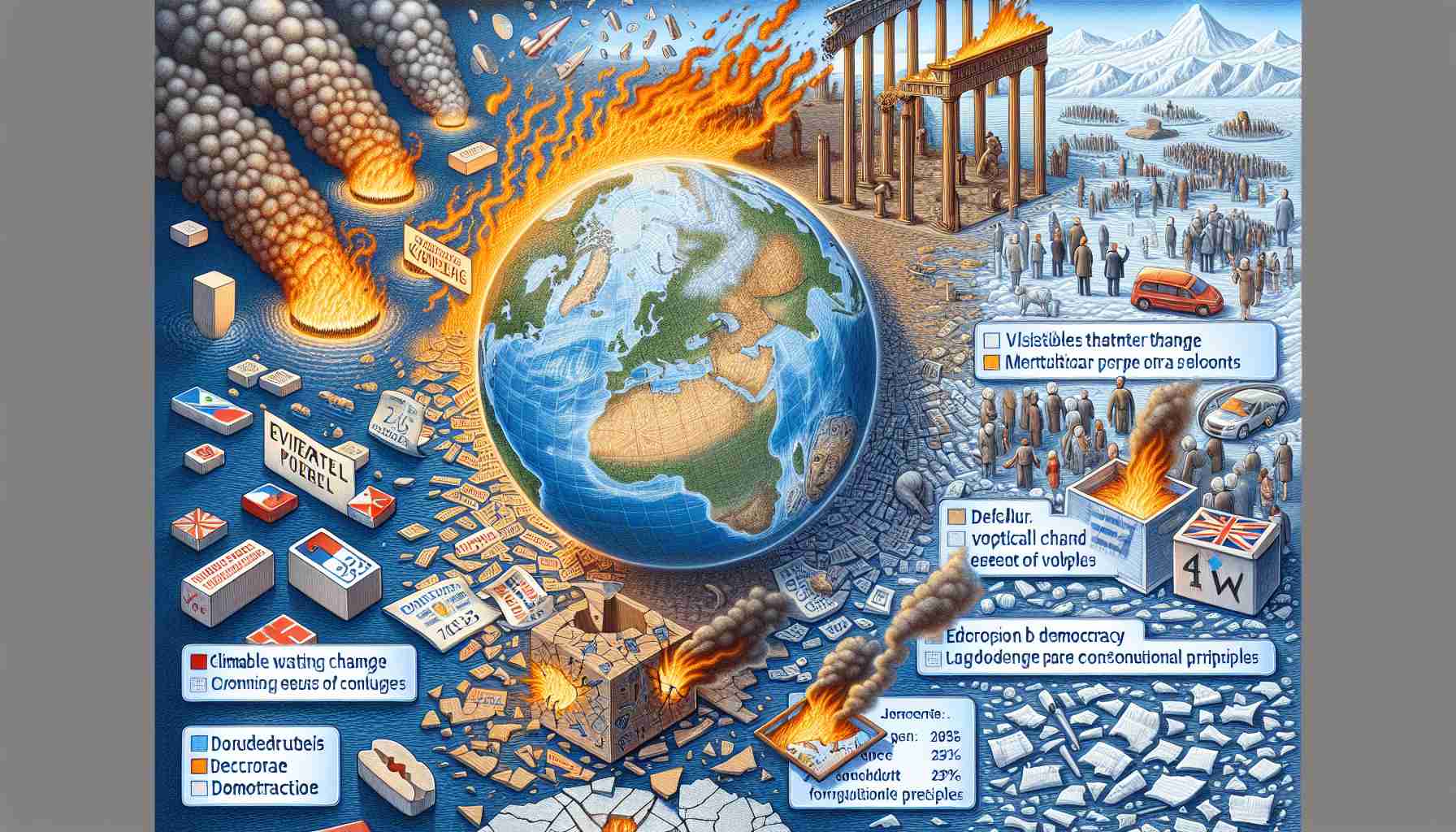Amnesty International sounded an alarm on the decline of democracies worldwide, indicating the number of people living in democracies has plunged to levels last seen in 1985. The NGO’s latest report unveils a year marked by disregard for international law, rising totalitarianism, and climate change impacts disproportionately affecting vulnerable communities.
The human rights situation has deteriorated with civilians bearing the brunt of armed conflicts in regions like Ukraine, Sudan, Myanmar, and Gaza. Amnesty International highlighted that Israel’s blatant disregard for international law has been met with inaction by its allies, resulting in unspeakable suffering for the civilians of Gaza.
Emerging technologies, notably AI, have been dual-use in nature, serving as weapons in conflicts used by the Israeli military and tools for mass surveillance in countries including Argentina, Brazil, India, and the United Kingdom. The New York Police Department revealed their use of these technologies to monitor Black Lives Matter protests, a stark reminder of the dangers when technology is deployed without constitutional safeguards.
Concerns about unregulated automation exacerbating inequalities were also raised, evidenced by the Serbian social protection system’s biased computational processes against disadvantaged communities, such as Romani people and individuals with disabilities.
Tech giants’ business models built on surveillance were criticized for fanning the flames of hate and division, with platforms like TikTok, despite its youthful user base, pushing content related to depression and mental health issues to maintain user engagement.
As major elections approach in countries like India and the USA in 2024, Amnesty warned of the risks associated with deepfake technologies and targeted campaigning, which could further destabilize democratic processes.
Moreover, the report calls for urgent regulatory action to keep pace with emerging threats from AI and to mitigate climate change, suggesting reforms within the United Nations Security Council to curb the misuse of veto power by permanent members.
In France, the report questioned the extent of the rollback of rights and freedoms post-2015 terrorist attacks, highlighting the French government’s increasing infringement on individual and collective liberties exemplified by the suppression of protests, enactment of a xenophobic immigration law, and indiscriminate use of force by police. With Paris set to deploy algorithmic surveillance for the 2024 Olympics, France is on the verge of breaching new frontiers in mass biometric data collection, potentially discouraging citizens from exercising rights like peaceful assembly.
Global challenges in 2023 are multifaceted, addressing critical issues such as climate change, conflicts, and the erosion of democracy. Each poses its own set of complexities:
Climate Change: The world is witnessing increasingly severe weather patterns, which are disproportionately affecting poorer nations and marginalized communities. Key challenges include international collaboration on emission reductions, adaptation strategies for vulnerable regions, and financing for climate mitigation. A significant controversy remains the fair distribution of responsibilities between developed and developing countries. Advantages of addressing climate change include long-term sustainability, health benefits, and economic opportunities in green industries. Disadvantages generally relate to the short-term economic costs and resistance from industries dependent on fossil fuels.
Armed Conflicts: Conflicts in Ukraine, Sudan, Myanmar, and Gaza highlight the human rights issues and the plight of civilians caught in the crossfire. The important question here is how to achieve sustainable peace and protect human rights in conflict zones. Key challenges include geopolitical tensions, the effectiveness of international law, and the role of international organizations in conflict resolution. Controversies often arise over the violation of sovereignty versus the necessity for humanitarian intervention. The advantage of resolving conflicts is the prevention of loss of life and stability in regions, while disadvantages can include complex post-conflict reconstruction and potential power vacuums.
Erosion of Democracy: The decline of democratic institutions and rise of authoritarianism globally raises critical questions regarding the vitality of democratic norms and the protection of civil liberties. Challenges include safeguarding electoral integrity, resisting authoritarian tendencies, and keeping technology from undermining democratic processes. Controversies often center around balancing state security measures with individual freedoms. The advantages of a robust democracy involve greater political stability, human rights protection, and better governance. In contrast, disadvantages can involve polarization, manipulation through misinformation, and challenges in reaching consensus-based decisions.
Emerging Technologies: AI’s dual-use nature for both societal benefits and as a tool for surveillance and conflict changes how we approach technology regulation. An important question is how to develop ethical guidelines and regulatory measures that promote beneficial uses of AI while preventing abuses. Challenges include ensuring technology’s compatibility with human rights and civil liberties, and keeping pace with rapid technological advancements. Controversies can arise over privacy concerns versus security measures. Advantages of AI include increased efficiency, innovation, and economic growth, whereas disadvantages revolve around job displacement, privacy erosion, and potential misuse.
The report also underscores the need for actions such as regulatory reforms to address these challenges and proposes modifications to international bodies like the UN Security Council to prevent the veto power from obstructing necessary interventions.
For more information on global issues, relevant organizations provide insights and ongoing research, such as the United Nations at un.org, Amnesty International at amnesty.org, and World Economic Forum at weforum.org.
The source of the article is from the blog newyorkpostgazette.com

